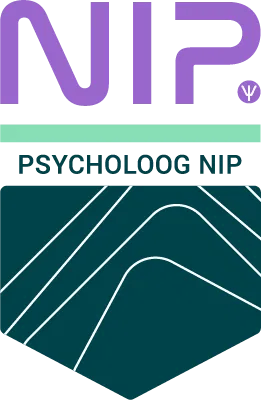How to get Therapy in the Netherlands? - A Short Guide for Expats
To help navigate the Dutch therapy system and demystify the process of finding the right support for you.
Melissa Horn
9/9/20254 min read
Finding your way in a country other than your own can be challenging in itself, let alone navigating the mental healthcare landscape. Things can become even more difficult if you don’t speak the local language. This is a very familiar scenario to many expats in the Netherlands. However, especially when you are transitioning into a new country, having the right support to deal with the emotional complexities of expat life can be vital in order to make sure you have a good start in this new chapter of your life. And even if your topics are not directly related to expat life, finding the right care as an expat can still come with its own challenges, such as finding a therapist who speaks your language or matters relating to costs and insurance. Whatever brings you to therapy or counselling, taking that step can help you gain a deeper understanding of yourself, develop healthier ways of coping with challenges, and enhance your overall sense of well-being.
To help navigate the Dutch therapy system and demystify the process of finding the right support, we have created this comprehensive guide to assist you on your way. First, it is useful to understand the various options available, which are outlined below:
A psychologist may have a university master’s in psychology, but isn’t necessarily always a licensed healthcare provider. In practice, you’ll find:
Basispsycholoog (basic psychologist) – not BIG-registered, often works in private practice (self-pay, not reimbursed).
GZ-psycholoog (healthcare psychologist) – BIG-registered, can diagnose and treat within insured mental healthcare.
Psychologists use evidence-based therapies, but their title alone doesn’t always indicate what type of therapy they offer.
A psychotherapist is a specific, legally protected health profession in NL.
A psychotherapist is BIG-registered and has completed advanced post-master training.
They are authorised to treat more complex, chronic, or severe psychological disorders (often reimbursed under insurance).
Psychotherapy usually refers to longer-term, in-depth treatment compared to the shorter, more structured interventions psychologists may provide.
Coaching → not healthcare, but guidance on goals, performance, life changes.
Specialised therapies (CBT, EMDR, etc.) → methods offered within psychology or psychotherapy, but sometimes also by coaches or other specialists.
Differences between BIG-registered therapists vs. non-BIG private practitioners
In the Netherlands, certain healthcare titles are legally protected. A BIG-registered professional is officially recognised by the Dutch Ministry of Health and meets strict education and quality standards. You can look them up in the BIG-register to check their credentials.
In practice, this often means:
They are qualified to diagnose and treat mental health conditions.
Their services may be (partly) covered by Dutch health insurance.
Professional and legal standards monitor their work.
Not all psychologists or therapists are BIG-registered. Some work in private practice (self-pay) and don’t fall under this system, but can still provide valuable support. The quality of their services depends on their individual training and background. Coaches or basispsycholoogen (basic psychologists) often fall under this category.
Non-BIG professionals can still offer excellent support, especially for mild to moderate concerns, personal growth, or when you prefer private, flexible care.
This goes hand in hand with a few other key differences between the public and private mental health care sector in NL;
Public sector Private sector
Treatment is usually covered by Dutch health insurance
Often not covered by insurance (self-pay), or only partially reimbursed, depending on practice and your insurance plan
Requires a referral from your GP
No GP referral needed
Long waiting lists (several months to a year) are common
Short waiting lists, often no waiting list
Multilingual therapists exist, but harder to find, especially if you are looking for a language other than English
Easier to find therapists who speak your preferred language
How to find a Therapist
Now that you have a rough understanding of the system, naturally, the next step is to find a professional or institution you would like to work with. As mentioned in the previous paragraph, if you wish to receive treatment that is covered by your health insurance, you will need to see your GP first and obtain a referral letter for a psychologist. Your GP might either address the letter to a specific therapy practice or not. The latter would allow you to apply to multiple practices and then potentially choose the one that seems to have the shortest waiting time. You can search for practices via the Zorgvinder section of your health insurance’s website. This allows you to filter for practices with which your insurance has a contract. Other ways of finding a therapist, either in the private or public sector, are by searching through online directories such as Zorgkaart Nederland, expat forums and websites such as IamExpat, or via recommendations from friends and family.
Starting Therapy
Once you have found a practice and have overcome the waiting time, you will typically first have an intake session. This may last an hour or even 90 minutes. During an intake session, the focus is on getting to know you and understanding your situation. The psychologist will ask questions about your current concerns, personal history, and relevant background (such as work, relationships, and health). They may also explore your goals for therapy and explain how they work, including confidentiality and practical details. The session is both an assessment and a chance for you to see if the psychologist feels like a good fit. By the end, you’ll typically agree on next steps, which could involve starting therapy, referrals, or deciding on a treatment plan.
Regular treatment sessions usually last 45 or 50 minutes, and may take place on a weekly or bi-weekly basis.
In order to make the most of therapy, it is important to be honest and open in your sessions, even if it can be a scary thing to do. Being vulnerable is undoubtedly scary, more so in a society which sometimes teaches us that vulnerability equals weakness. However, in reality, asking for help and showing a willingness to work on oneself is a sign of self-awareness and character strength. There is something brave about defying the stigma that is attached to asking for help. Furthermore, remember that your therapist’s main task is to hold this judgment-free, confidential space for you. Moreover, while your therapist may offer guidance, it is you who holds the steering wheel, gently navigating the course of your therapy and progress.
The process of getting therapy can seem daunting and overwhelming at first, but it might help to think of it as a process of exploring and discovering oneself more. Moreover, as progress may not always follow a linear path, know that small shifts are often meaningful. By reading this guide, you’ve taken the first step. If you are still left with further questions, you are welcome to reach out to our team.


